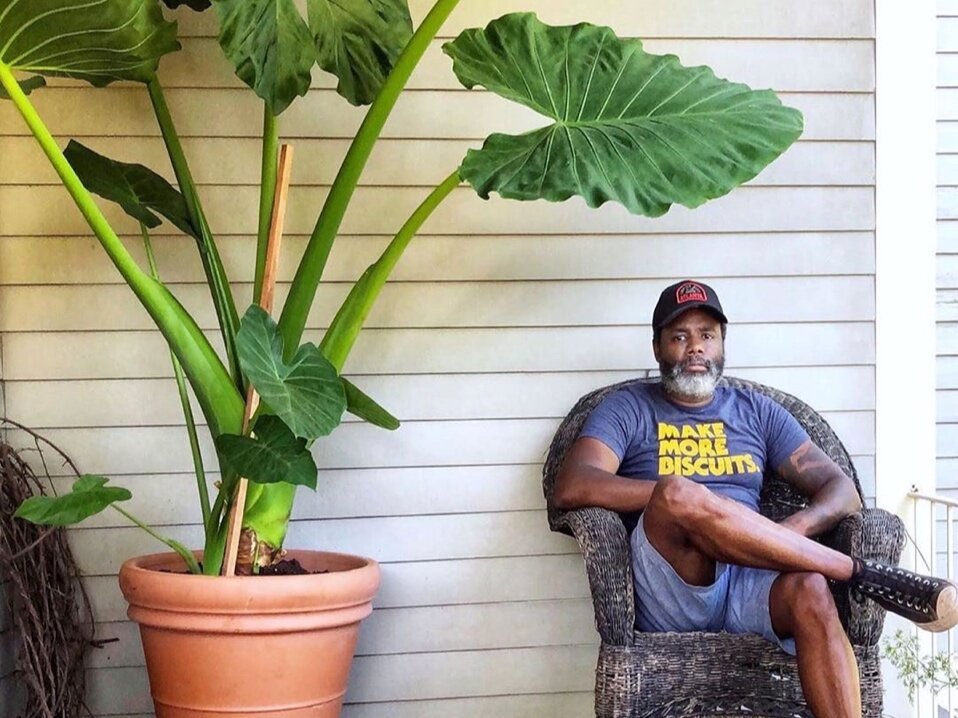A personal look at the high-risk work of Southern poultry workers and how COVID-19 has made it worse.
by Shorlette Ammons
The labor of Black Southern women has been the one true staple of the American dinner table for generations. Most of my seven aunts have worked at produce, pork, or poultry processing facilities in North Carolina’s eastern region for as long as I’ve been alive and much of their adult lives. As we recognize the devastation of COVID-19, and the fearsome cost to meatpacking plant workers, we also recognize this: The resilience and resolve of Black women has persevered in the wake of violent and demeaning conditions from southern fields, to plantation kitchens, and now processing plants.
Two of my elderly aunts and one of my cousins are still employed at the poultry plants back home. Swollen hands and pulsating varicose veins trail the tired limbs of older Black women, like my aunts, who have worked these plants for over 60 collective years (34 years each as of September 2020). They are part of an invisible, devalued labor pool that is deeply affected economically, emotionally and physically by a tainted history that has bled into today’s meat and poultry processing industries. All this, to put chicken pastry on our supper tables.
The second oldest of my seven aunts, who is now 75 years old, has worked much of her 30 plus years at the turkey plant, repetitively dismantling birds on the cut up line. That amounts to millions of small bones tediously and meticulously plucked by hand, at a rate of about 50 birds per minute, by humans, standing only a few feet apart, hustling to keep pace with an unforgiving line surrounded by hooks, sharp knives, and mechanical conveyors. Now, add a virus that thrives in the conditions of meat packing plants, where cool temperatures, poor air circulation, and human proximity prevail.
Imagine the toll of 30 plus years “on the line,” both literally and figuratively. Swollen feet get a good soaking of Epsom salt and warm water just before bedtime. Masks are scrubbed and rinsed by already toiled hands for reuse the next workday. Peace and a good night’s rest is now interrupted by an uneasy indignation due to the lingering coronavirus threat that looms over each shift. The presence alone of these “essential” workers represents a true indication of resolve and strength.
However, such endurance assumes Black women, immigrants, and other frontline workers must simply abide the worst conditions, dependably returning to a hazardous and exploitative workplace in the midst of turmoil and elevated risk. What good is personal resilience if it bounces you back into desperate conditions as opposed to uplifting you beyond disparaging circumstances? This justification for the daily grind is pain, fear, and risk.
Under these circumstances, the resilience demonstrated by my aunts and women like them is clearly, and more accurately, a devotion to their families, their community of fellow workers, and to the place that provides them a steady income in a small, rural town with few alternatives; a proud Southern ethic rooted in small towns and rural places.
We love our meat. Whose Sunday table would be complete without country ham, barbecue chicken, or greens seasoned with ham hocks? Meanwhile, we have a hazy picture of the human cost associated with savoring our bacon and chicken nuggets. The U.S. processed nine billion chickens in 2017. According to the National Chicken Council, Americans have consumed about 116 pounds of poultry and more than 50 pounds of pork per capita so far this year alone.
The industry tells us that halting production in meat processing plants will leave a large gap in our ability to feed ourselves. However, there is a more significant and growing cost for keeping the plants open, which can be counted in human lives. To protect corporate profits, workers who average $13-$14 hourly wages, have been deemed “essential” in the pandemic’s wake, by a presidential executive order. This means that to retain their jobs these workers must continue to show up to work that has become even more hazardous. It means that these workers must show up to work and risk the increased probability of contracting COVID-19 without the veil of protections, like enhanced protective measures and equipment and increased pay, associated with elevated risk.
CDC and OSHA guidelines that could protect conditions for poultry and meat packing workers are voluntary and unenforceable, and if adopted, would result in slower line speeds and lowered profits. The industry has, once again, chosen to bypass the opportunity to demonstrate they value their workers over their profits. As assuredly as they are “essential” for profits, Black women like my aunts, immigrants whose names are lost to us (often spoken of in numbers but seldom by name), and the nearly 500,000 workers “on the line” are clearly also expendable to this industry.
The coronavirus crisis is shining a beam of light on a part of the poultry industry that has been long forgotten. Poultry and other large scale meat processing plants that choose to remain open through this pandemic are exploiting the resilience and economic desperation of Black mothers, aunts, and daughters. After a two-month battle with COVID-19, one of my aunt’s co-workers recently paid the ultimate sacrifice for the sake of our dinner plates. She is one of several immigrants from Mexico and other countries, whose deaths due to Covid-19 go undocumented due to difficulty in tracking and lack of transparency by this industry. Her unnecessary death symbolizes and lifts up the plight of people who have been living in the midst of an inexcusable and irreconcilable crisis that has existed in our nation long before this pandemic.
Meat and poultry processing plants generate billions of dollars in annual income and are vital to rural economies in North Carolina, Georgia, Alabama, Arkansas and Mississippi. Under these unprecedented circumstances, they can afford to keep safe working conditions and pay their workers a pandemic premium. When workers fall sick, they should receive hazard pay and sick leave and the right to return to their jobs when they have recovered. The industry’s profits are not worth the risks that workers like my elderly aunts have taken as this virus spreads. Human lives and families should not be condemned to financial insecurity due to the loss of their providers. I am willing to sacrifice and have less meat on my plate for the sake of worker health and safety.
Shorlette Ammons is a North Carolina native and still calls NC home. She grew up in Beautancus among a large family of farmworkers, cooks, and storytellers. She is a former children’s librarian, with a Masters of Library Science (MLS) degree from North Carolina Central University in Durham, NC. She is a 2011 Center for Social Inclusion, Maya Wiley Fellow and a current Castanea Fellow who stands on the shoulders of many BIPOC and country farmers and food systems activists and sees her work as a reflection of those who came before her and in service of all frontline communities.






